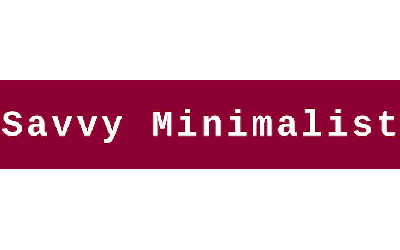How to Choose the Right Bank to Deposit Money: A Comprehensive Guide
Choosing the right bank to deposit your money is a crucial decision that can significantly impact your financial well-being. With numerous banking options available, it can be overwhelming to decide which one best suits your needs. This guide will help you navigate the process of selecting the right bank by highlighting key factors to consider, ensuring you make an informed and beneficial choice.
1. Identify Your Banking Needs
Before you start comparing banks, it’s essential to understand your specific banking needs:
- Types of Accounts: Determine whether you need a checking account, savings account, certificate of deposit (CD), or other types of accounts. The right bank will offer a variety of account options to suit your needs.
- Transaction Frequency: Consider how often you’ll be depositing or withdrawing money. The right bank will provide convenient access to your funds.
- Additional Services: Think about whether you need additional services such as loans, credit cards, investment options, or financial advice. The right bank will have comprehensive services that meet your requirements.
2. Research Different Types of Banks
Understanding the different types of banks can help you narrow down your choices:
- Traditional Banks: These are large, well-known banks with physical branches and a wide range of services. Examples include Chase, Bank of America, and Wells Fargo. For some, these might be the right banks due to their extensive service offerings.
- Credit Unions: Non-profit institutions owned by their members. They often offer better interest rates and lower fees but may have limited branch networks. For many, credit unions are the right banks because of their member-focused approach.
- Online Banks: Banks that operate entirely online without physical branches. They often offer higher interest rates on deposits and lower fees due to reduced overhead costs. Examples include Ally Bank, Chime, and Marcus by Goldman Sachs. Online banks might be the right banks for tech-savvy individuals.
- Community Banks: Smaller, local banks that offer personalized service and focus on community needs. Community banks could be the right banks for those who value local engagement and personal relationships.
3. Compare Interest Rates
Interest rates are a critical factor, especially for savings accounts and CDs:
- Savings Accounts: Look for the right bank offering competitive interest rates to maximize the growth of your savings.
- Certificates of Deposit (CDs): Compare the interest rates for different CD terms. Higher rates can significantly increase your earnings over time, making the right bank choice crucial.
4. Evaluate Fees and Charges
Bank fees can add up quickly, so it’s essential to be aware of them:
- Monthly Maintenance Fees: Some banks charge a monthly fee for maintaining your account. Look for the right bank that offers fee waivers based on certain criteria, such as maintaining a minimum balance or setting up direct deposits.
- ATM Fees: Consider the availability and cost of using ATMs. The right bank will offer free access to a network of ATMs.
- Overdraft Fees: Check the right bank’s policy on overdrafts and the associated fees. Some banks offer overdraft protection services.
5. Consider Accessibility and Convenience
Convenience is crucial for your day-to-day banking needs:
- Branch Locations: If you prefer in-person banking, choose the right bank with branches near your home or workplace.
- Online and Mobile Banking: Ensure the right bank offers a robust online and mobile banking platform for easy access to your accounts, bill payments, and money transfers.
- Customer Service: Look for the right bank known for excellent customer service, whether through in-person interactions, phone support, or online chat.
6. Examine Account Features and Benefits
Different banks offer various features and perks:
- Rewards Programs: Some banks offer rewards for using their debit cards or maintaining high balances. The right bank will provide beneficial rewards programs.
- Account Alerts: Useful features such as balance alerts, low balance notifications, and fraud detection alerts can help you manage your finances more effectively. Ensure the right bank offers these features.
- Integration with Financial Tools: If you use budgeting apps or financial management tools, check if the right bank supports integration with these services.
7. Check for Security and Stability
Your money’s safety is paramount:
- FDIC Insurance: Ensure the right bank is insured by the Federal Deposit Insurance Corporation (FDIC), which protects your deposits up to $250,000 per account.
- Bank Stability: Research the right bank’s financial health and stability. Look for banks with a strong reputation and positive reviews from customers.
8. Read Reviews and Seek Recommendations
Gaining insights from current customers can be valuable:
- Online Reviews: Read customer reviews on websites like Bankrate, NerdWallet, and Consumer Affairs to get a sense of other people’s experiences with the right bank.
- Personal Recommendations: Ask friends, family, or colleagues about their banking experiences and recommendations to find the right bank.
FAQ on Choosing the Right Bank
1. Why is it important to choose the right bank?
Choosing the right bank is crucial because it directly impacts your financial health, convenience, and access to essential banking services. The right bank will offer competitive interest rates, low fees, and the specific services you need, ensuring you can manage your money effectively.
2. What factors should I consider when choosing the right bank?
When choosing the right bank, consider factors such as:
- Types of accounts offered (checking, savings, CDs)
- Interest rates on deposits
- Fees and charges (monthly maintenance, ATM, overdraft)
- Accessibility and convenience (branch locations, online and mobile banking)
- Customer service quality
- Security and stability (FDIC insurance, bank reputation)
3. How do interest rates affect my decision in choosing the right bank?
Interest rates determine how much your money will grow over time, especially in savings accounts and CDs. Choosing a bank with competitive interest rates can significantly enhance your savings and overall financial health.
4. What types of fees should I be aware of when selecting a bank?
Be aware of various fees, including:
- Monthly maintenance fees
- ATM fees (especially for out-of-network ATMs)
- Overdraft fees
- Fees for insufficient funds
- Wire transfer fees
The right bank will offer transparent fee structures and options to waive fees based on certain criteria.
5. What is the importance of FDIC insurance?
FDIC insurance protects your deposits up to $250,000 per account in case the bank fails. Ensuring your bank is FDIC-insured provides peace of mind that your money is safe.
6. How does online and mobile banking influence my choice?
Online and mobile banking provide convenience, allowing you to manage your accounts, pay bills, and transfer money anytime and anywhere. The right bank should offer a robust, user-friendly online and mobile banking platform to meet your digital banking needs.
7. Why should I consider a bank’s customer service quality?
Good customer service is essential for resolving issues quickly and effectively. The right bank will have a reputation for excellent customer service, accessible through multiple channels such as in-person, phone, and online support.
8. Should I choose a traditional bank, credit union, or online bank?
The choice depends on your preferences:
- Traditional Banks: Offer a wide range of services and extensive branch networks but may have higher fees.
- Credit Unions: Member-owned, often providing better interest rates and lower fees, but with fewer branches.
- Online Banks: Typically offer higher interest rates and lower fees due to reduced overhead costs, but lack physical branches.
Evaluate your needs and preferences to decide which type of institution is the right bank for you.
9. How do I compare different banks effectively?
To compare different banks:
- Research online for interest rates, fees, and account features.
- Read customer reviews and ratings.
- Visit bank websites for detailed information.
- Seek recommendations from friends and family.
- Consider visiting branches to get a feel for their customer service.
10. Can the right bank help with my financial goals?
Yes, the right bank can support your financial goals by offering suitable accounts, competitive interest rates, and financial planning services. Look for banks that provide tools and resources for budgeting, saving, and investing to help you achieve your financial objectives.
11. What should I do if I am unhappy with my current bank?
If you’re unhappy with your current bank, evaluate other banks based on the factors mentioned above. Once you find the right bank, you can open new accounts, transfer your funds, and close your old accounts. Ensure you update any automatic payments or direct deposits to your new account.
12. How often should I review my banking options?
Regularly reviewing your banking options ensures you continue to get the best service and value. Consider evaluating your banking needs and options every couple of years or when significant life changes occur, such as a new job, moving, or changes in financial goals.

